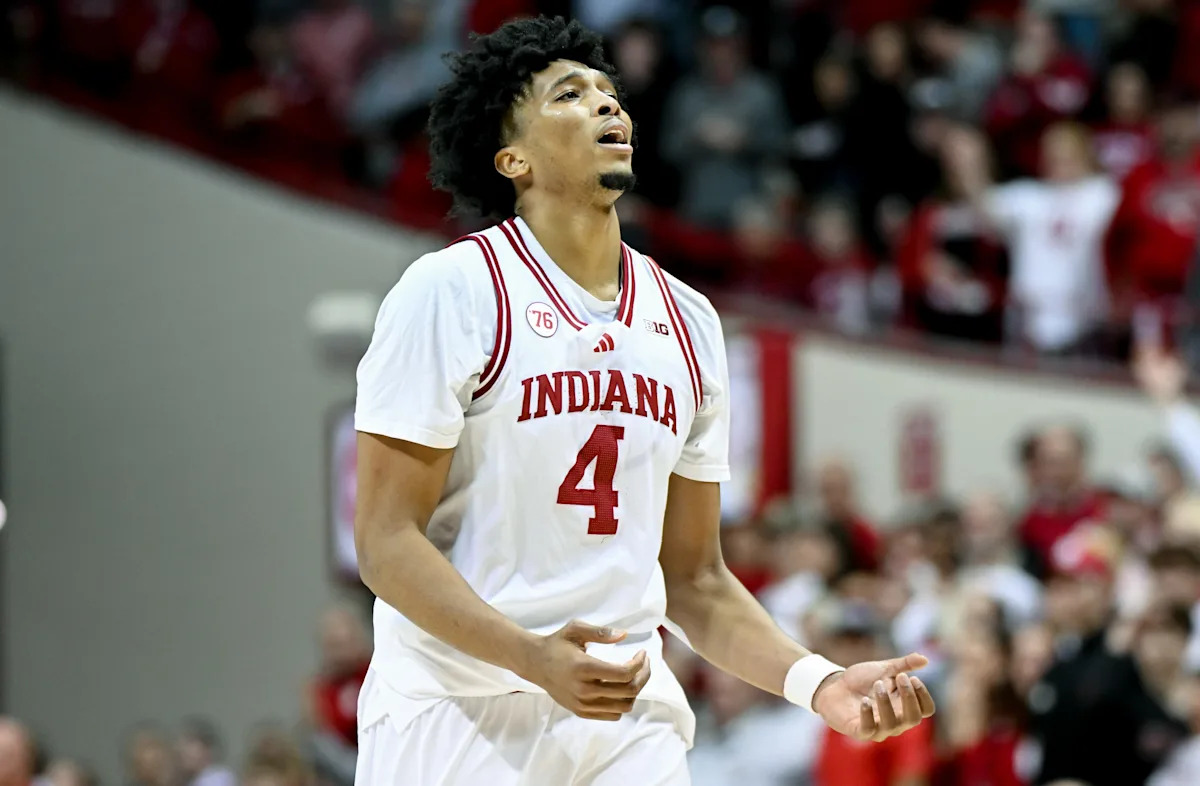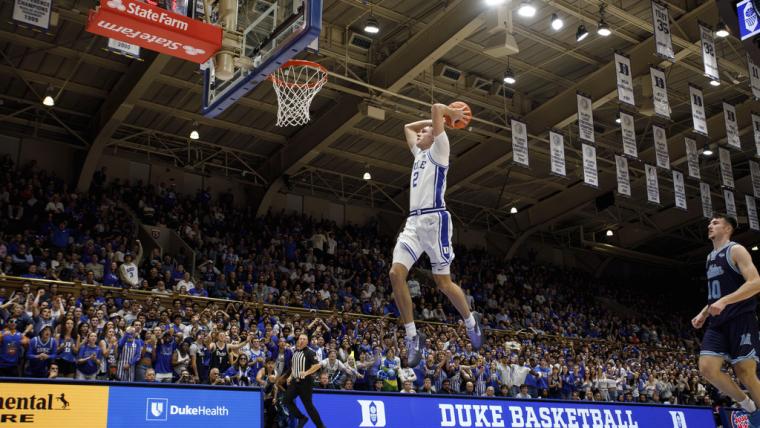A growing number of former Indiana University men’s basketball players are accusing a doctor who worked with the team for more than 20 years during the Bob Knight era of sexual misconduct.
In October, former Hoosiers players Haris Mujezinovic and Charlie Miller sued the university and former head athletic trainer Tim Garl, alleging they “had active knowledge” of team physician Dr. Bradford Bomba’s conduct and that the university “acted with deliberate indifference.” In April, former players John Flowers and Larry Richardson Jr. joined the suit. Attorney Michelle Simpson Tuegel told The Athletic on Wednesday that at least 10 more players plan to come forward in a separate upcoming filing.
ESPN first reported that 10 more players plan to proceed legally with a case. Simpson Tuegel did not put a timeline on when those players could file a lawsuit, saying she and her team were “preparing and getting more information.”
The four players who have filed suit so far said basketball players “were routinely and repeatedly subjected to medically unnecessary, invasive, and abusive digital rectal examinations” (DREs) by Bomba, who worked with the team from the 1970s into the early 2000s.
“As a grown man it breaks my heart to think about what happened to me when I was a young, vulnerable, and trusting student excited to play basketball at Indiana University,” Mujezinovic said in a statement provided by attorney Kathleen Delaney.
“At the time I viewed myself as an adult, but now I realize looking at my own kids how young and powerless me and my teammates actually were. The adults within the basketball program who were entrusted with our care knew what was happening to us. They joked about and let it continue.”
In response to a request for comment, Indiana referred The Athletic to a statement it made May 1, when it released a report from a review of the allegations by the law firm Jones Day. Indiana commissioned the report in September. In the report, Jones Day wrote that “the evidence did not lead us to conclude that Dr. Bomba acted in bad faith or with an improper purpose when performing DREs while conducting thorough and complete (pre-participation physical examinations) of college-age student athletes.”
The university filed its most recent response to the lawsuit filed by the four players on Monday, a brief arguing for the complaint to be dismissed because it falls outside of the statute of limitations.
Bomba died on May 8 at the age of 89. He was deposed in December after the initial lawsuit was filed. During the 75-minute deposition, he asserted his Fifth Amendment right against self-incrimination 45 times to refuse to answer questions. In a civil lawsuit, the Fifth Amendment does not forbid inferences that the answer would have been incriminating if he had given it.
Bomba (right) sitting next to Knight in a 1996 game. (Photo: Jonathan Daniel / Allsport)
Bomba testified that Garl, Indiana’s head athletic trainer from 1981 until earlier this year, was the individual in charge of the medical team for the men’s basketball players. In their lawsuit, the players said Garl directed them to see Bomba despite complaints about the examinations.
Garl’s attorneys have argued that he did not supervise Bomba in any “relevant sense,” ESPN reported. Garl’s attorney did not respond to a request for comment on Wednesday.
Indiana athletic director Scott Dolson did not renew Garl’s contract for a 45th season in March, stating he would like a “fresh start” for the IU basketball sports medicine staff.
After receiving a letter from a former player’s legal counsel in August outlining allegations against Bomba, Indiana commissioned the Jones Day investigation in September. The firm interviewed “close to 100” individuals and reviewed more than 100,000 pages of physical documents, the university said. Jones Day stated its findings supported Bomba to have acted in a “clinically appropriate manner.”
Investigators in the report noted that “players would commonly joke or engage in what they characterized as ‘locker room banter’ regarding Dr. Bomba’s DREs, including within earshot of one another and certain staff members.”
Simpson Tuegel said the university’s failures to appropriately respond to the allegations and the framing of the Jones Day report have driven more players to come forward.
“They tried to couch it as there was a lack of sexual intent, and we strongly disagree with that,” she said.
As team doctor, Bomba was a presence at Indiana games, sitting next to Knight on the bench and traveling to most away games. He gained “wide recognition” by fans, Jones Day wrote in its report.
Former Indiana star Butch Carter, who went on to play and coach in the NBA, said in an affidavit in March that he complained to school officials multiple times about Bomba during Carter’s senior season, which was in 1979.
“I fought with Coach Knight multiple times about any players being near Dr. Bomba, Sr. Coach Knight took no action to address my complaints that I’m aware of,” wrote Carter, who is not one of the four plaintiffs who have filed suit.
Knight died on Nov. 1, 2023, at the age of 83. Knight’s son Pat, who played for the Hoosiers from 1990 to 1995, said in the Jones Day report that Bomba was his family physician from a young age and that he received a DRE from the doctor while playing at the university. Pat Knight, currently the men’s basketball coach at Marian University in Indianapolis, did not respond to a request for comment.
In recent years, former athletes at Michigan and Ohio State filed lawsuits against former trainers after the trainers had died, and years after the statute of limitations had expired.
In the Ohio State case against Dr. Richard Strauss, who died by suicide in 2005, the school paid more than $60 million in settlements to 296 accusers from 2020 to 2022.
In the Michigan case against former team doctor Robert Anderson, who died in 2008, the school finalized a $490 million settlement with more than 1,000 abuse survivors in 2022. Simpson Tuegel said she represented some of the men who accused Anderson of abuse, and noted it could be helpful for the jury in this Indiana case to have Bomba’s deposition from before he died on record.
Miller, one of the two former players who originally filed the lawsuit, said in a statement through Delaney that Bomba’s death didn’t “weaken my desire to move forward.”
“We don’t always get second chances to speak up,” he said. “So I’m using mine now.”
(Photo of Bomba, right, sitting next to Bob Knight, center: Jonathan Daniel / Allsport)


























